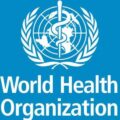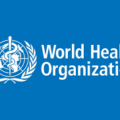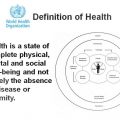What is primary health care?
The World health Organization defines Primary health care as a whole-of-society approach to health and well-being centred on the needs and preferences of individuals, families and communities. It addresses the broader determinants of health and focuses on the comprehensive and interrelated aspects of physical, mental and social health and wellbeing.
It provides whole-person care for health needs throughout the lifespan, not just for a set of specific diseases. Primary health care ensures people receive comprehensive care – ranging from promotion and prevention to treatment, rehabilitation and palliative care – as close as feasible to people’s everyday environment.
Primary health care is rooted in a commitment to social justice and equity and in the recognition of the fundamental right to the highest attainable standard of health, as echoed in Article 25 of the Universal Declaration on Human Rights: “Everyone has the right to a standard of living adequate for the health and wellbeing of himself and of his family, including food, clothing, housing and medical care and necessary social services.
The concept of primary health care has been repeatedly reinterpreted and redefined. In some contexts, it has referred to the provision of ambulatory or first-level of personal health care services. In other contexts, primary health care has been understood as a set of priority health interventions for low-income populations (also called selective primary health care). Others have understood primary health care as an essential component of human development, focusing on the economic, social and political aspects.
WHO has developed a cohesive definition based on three components:
- meeting people’s health needs through comprehensive promotive, protective, preventive, curative, rehabilitative, and palliative care throughout the life course, strategically prioritizing key health care services aimed at individuals and families through primary care and the population through public health functions as the central elements of integrated health services;
- systematically addressing the broader determinants of health (including social, economic, environmental, as well as people’s characteristics and behaviours) through evidence-informed public policies and actions across all sectors; and
- empowering individuals, families, and communities to optimize their health, as advocates for policies that promote and protect health and well-being, as co-developers of health and social services, and as self-carers and care-givers to others.
Alma Ata Conference definition of Primary Health Care
The Alma Ata Conference defines Primary Health Care as essential health care based on practical, scientifically sound and socially acceptable methods and technology made universally, accessible to individuals and families in the community by means acceptable to them, through their full participation and at a cost that community and country can afford to maintain at every stage of their development in the spirit of self-reliance and self-determination. It forms an integral part of both the country’s health system, of which it is the central function and the main focus and of the overall social and economic development of the community.
Involvement of communities in planning, delivery and evaluation of such care and an active role for other sectors in health activities.
Health care workers must understand their responsibilities for maintaining, restocking and securing medical supplies on a regular basis. Must have knowledge of community-based principles of case finding, record keeping, community monitoring of immunizations, prenatal care, disease prevention, health promotion, and basic measures to ensure community sanitation.
Goal
- The global goal as stated in the Alma Ata Declaration is Health for All by the year 2000 through self-reliance.
- Health begins at home, in schools and in the workplace because it is there where people live and work that health is made or broken.
- It also means that people will use better approaches than they do now for preventing diseases and alleviating unavoidable disease and disability and have better ways of growing up, growing old and dying gracefully.
- It also means that there will be even distribution among the population of whatever resources for health are available.
- It means that essential health services will be accessible to all individuals and families in an acceptable and affordable way.
Principles and Strategies
- Universal coverage of the population, with care provided according to need: No one should be left out, no matter how poor or how remote. It means the all in health for all.
- Services should be promotive, preventive, curative, and rehabilitative: Services should not be only curative, but also should be promotive to the populations understanding of health and healthy style of life, and reach toward the root causes of diseases with preventive emphasis. Treatment of illness and rehabilitation are important as well.
- Services should be effective, culturally accepted, affordable and manageable: Services must be effective, cultural acceptability and effectiveness are mutually dependent. Services must be affordable in local terms as governmental resources are limited.
- Community should be involved to promote self- reliance: The community should be actively involved in the process of defining health problems and needs, developing and implementing and evaluating programs.
- Approaches to health should be related to other sectors of development: Actions should be taken to deal with cause of ill health. Education for literacy, clean water and sanitation, improved housing, ecological sustainability, building of roads or waterways, income supplement, enhancing roles for women, more effective marketing of products. All theses have a substantial impact on health.
Essential Health Services in Primary Health Care (ELEMENTS)
- E – Education for Health
- L – Locally endemic disease control
- E – Expanded program for immunization
- M – Maternal and Child Health including responsible parenthood
- E – Essential drugs
- N – Nutrition
- T – Treatment of communicable and non-communicable diseases
- S – Safe water and sanitation
Primary health care is the first point of contact for individuals who are unwell and to promote healthy lifestyles in order to prevent illness from occurring. Principles of primary health care are a set of beliefs and values that revolve around equity and fairness for all, eliminating discrimination, so that all people have access to primary health care whenever they need it. Under the principles, primary care should be organized and distributed to minimize costs, so that health care is affordable and accessible.
One of the overriding principles of primary health care is that it is the first point of contact for people should they experience illness. If a patient has a bad back, he could utilize primary health care by visiting a doctor or nurse. Principles of primary health care state that it must be accessible by all people, regardless of factors such as socio-economic background, color, race or sexuality.
The World Health Organization (WHO) works towards helping countries to provide excellent health care for all people. They set out goals and principles for primary health care for organizations and communities to work towards, in their “Health for All” strategy. According to these goals, no one should be excluded from receiving primary health care and social discrimination should be eliminated. Medical care must be fairly distributed among all people, no matter where they live or their social class.
Effective and regular training is a principle, along with developing the primary health care work force. It also involves working with communities to make the most of the contributions individuals can make to their own health and the health of their communities. Peoples needs should be investigated and taken into account when organizing and distributing primary health services. The needs of the patients are more important than the needs of the organization.
Further principles of primary health care include shaping public policy to reflect health care goals so that there are guidelines and targets to work towards. “Healthy” public policy should be a part of all sectors, for example in production of healthy food, in educating people on how to live healthy lives, and in public amenities such as waste removal. Empowering people to keep healthy is part of primary health care. Health promotion can prevent many illnesses from occurring in the first place.
Those who use primary health care should be encouraged to have a say on how services are provided. Technology is also taken into account, as it must be appropriate and affordable and not push up the price of health care. Primary health care should be affordable to individuals and the country as a whole so that it remains accessible and the very poor are not excluded.
Why is primary health care important?
Renewing primary health care and placing it at the centre of efforts to improve health and wellbeing are critical for three reasons:
A. Primary health care is well-positioned to respond to rapid economic, technological, and demographic changes, all of which impact health and well-being. A recent analysis found that approximately half of the gains in reducing child mortality from 1990 to 2010 were due to factors outside the health sector (such as, water and sanitation, education, economic growth). A primary health care approach draws in a wide range of stakeholders to examine and change policies to address the social, economic, environmental and commercial determinants of health and well-being. Treating people and communities as key actors in the production of their own health and well-being is critical for understanding and responding to the complexities of our changing world.
B. Primary health care has been proven to be a highly effective and efficient way to address the main causes and risks of poor health and well-being today, as well as handling the emerging challenges that threaten health and well-being tomorrow. It has also been shown to be a good value investment, as there is evidence that quality primary health care reduces total healthcare costs and improves efficiency by reducing hospital admissions. Addressing increasingly complex health needs calls for a multisectoral approach that integrates health-promoting and preventive policies, solutions that are responsive to communities, and health services that are people-centred. Primary health care also includes the key elements needed to improve health security and prevent health threats such as epidemics and antimicrobial resistance, through such measures as community engagement and education, rational prescribing, and a core set of essential public health functions, including surveillance. Strengthening systems at the community and peripheral health facility level contributes to building resilience, which is critical for withstanding shocks to the health system.
C. Stronger primary health care is essential to achieving the health-related Sustainable Development Goals (SDGs) and universal health coverage. It will contribute to the attainment of other goals beyond the health goal (SDG3), including those on poverty, hunger, education, gender equality, clean water and sanitation, work and economic growth, reducing inequality and climate action. SEE: Equity Vs Equality: Understanding The Difference





